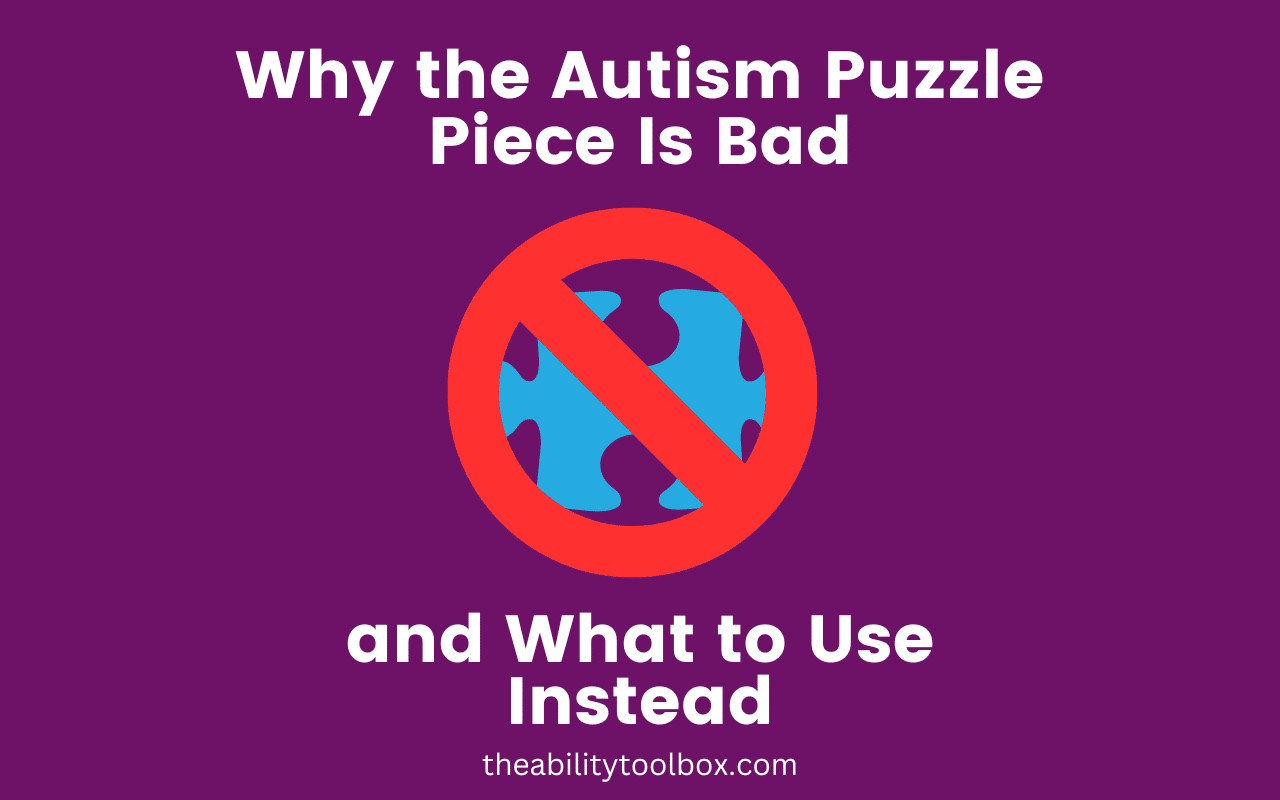
When someone in your social circle is autistic, you might notice that sometimes they behave differently than non-autistic people. Some of these things, such as noise sensitivity, are easy to understand and easy to accommodate, but not everything they do might make sense to you. This article will go over six autism behaviors you might notice in your autistic loved one, and will give tips on how to accommodate them.
1. Autistic people tend to say what they mean.
Where a non-autistic person might try to beat around the bush in order to spare someone’s feelings, or in order to look good in the eyes of the other, an autistic person will most likely tell you exactly what they think. This can cause conflicts on both sides.
Because autistic people don’t have a hidden agenda, they struggle to deal with people that do and tend to take things literally. This means that if you tell them that “everyone brings some food to the party, but you’re not obligated to do so,” while you actually want to say “it’d be nice if you’d bring some food,” you shouldn’t be surprised when they show up without food.
The other way around, you might be inclined to believe that your loved one also expects you to read between the lines, while chances are that they’re not. So if an autistic person tells you “I thought you would help me, but it’s fine,” chances are that it’s actually fine. They’re not being passive-aggressive.
How to accommodate
First and foremost, try not to get upset or angry when this miscommunication happens. You’re just working with two different communication styles, so conflicts will happen from time to time. Second, you can help by saying exactly what you mean, and by dropping the assumption that your loved one isn’t saying what they actually mean. When in doubt, just ask to clarify. Asking is always better than assuming.
2. Autistic people may do things in a way that is highly specific or seemingly illogical or inefficient.
Autistic people are often accused of being stubborn for wanting to do things a certain way. In reality, this has very little to do with being stubborn and is instead linked to the way their brain works. Being autistic means your brain is wired differently, so what seems logical and efficient for non-autistic people, might be confusing and complicated for autistics.
This is why you might catch your loved one doing something in a way that to you seems like it’s more work than needed. However, to them, this is the most efficient way of doing something, and therefore they might reject your suggestion on how to do it differently. Besides, it’ll probably take them longer to understand the non-autistic way of doing something than it’ll take them to complete the task in their own way.
How to accommodate
All roads lead to Rome, and unless the chosen method is a safety hazard, there’s no reason not to let your autistic loved one just do things in a way that makes sense to them. It's not wrong, it’s just different.
3. Autistic people can experience task overwhelm.
Aside from getting overwhelmed by sensory input, such as noises, textures, or smells, autistic people can also get overwhelmed by tasks, no matter how small and simple they seem. This isn’t because they’re overreacting, but because their brains sometimes struggle to process information properly, if they process it at all. This is known as executive dysfunction.
At the root of this overwhelm is usually either confusion or a loss of oversight. For example, doing the laundry can be very overwhelming because it has multiple components: the washing instructions for the clothes, the settings on the washing machine, and the kind and amount of detergent to use. While a non-autistic person might just guess what the best combination of the three is, an autistic person usually likes certainty, and so they want to do it right. This uncertainty can cause them to feel overwhelmed and that might lead to a meltdown.
How to accommodate
First, be understanding of the problem. To you, it may seem like they’re overreacting, but to them, this is a very big and real problem. Second, help them figure out where the overwhelm comes from. If it’s because they’re confused about what to do, explain it to them or show them. If it’s because there’s no oversight, help them create oversight by splitting the task into steps. Lastly, if there are tasks your loved one has struggled with on multiple occasions, offer to do them for them instead. For example, if your friend gets overwhelmed whenever they have to order food, it might be more helpful to do it for them. With their consent, of course.
4. Autistic people often mask their neurodivergent traits and behaviors.
Masking is a term that’s very well known in the autistic (and neurodivergent) community, but less so among neurotypicals. Masking essentially means pretending not to be autistic. Many autistic people are told they have to adapt to the neurotypical way of life, and they get therapy where they learn to hide their autistic behavior. This is why “you don’t look autistic” is not the compliment you may think it is (it’s the opposite, really). There’s no way to “look” autistic, and many autistics are just very good at hiding their autistic traits.
But pretending to be someone else all day is, as you can imagine, incredibly draining. It can lead to burnout, depression, anxiety, and even suicide. Chances are that your autistic loved one masks sometimes, or perhaps even all the time, even if you don’t realize it. Some autistic people have been masking for so long that they’re struggling to take the mask off (unmasking) because they’ve become too disconnected from their natural behavior. Others can’t stop masking because it’ll put their job at risk, or their general safety, which is often the case for BIPOC.
How to accommodate
Most autistics have learned that the world isn’t accepting of the way they are, and so they often don’t feel safe unmasking outside of their home. As their loved one you can help by creating a safe space for them to unmask, for example by letting them stim* without judging, or accommodating them in their needs. The most important thing is to ask your loved one what they need to feel safe and accepted, as this is different for everyone.
*Self-stimulatory behavior, or stimming, is something many autistic people do to deal with overwhelm or to express their emotions. Examples are hand flapping, humming, rocking, and fidgeting, but it takes many forms. Autistic people are often told that stimming is bad, even though it’s something that often helps them regulate their feelings.
5. “Picky” eating is common among autistic people.
Autistic people are often known as “picky” eaters. This term has a negative connotation, and because of that autistic people are seen as difficult. In reality, autistic people aren’t “picky,” they’re just sensitive to certain tastes and textures. The autistic brain processes information differently, including sensory information such as taste. And where a non-autistic brain is often able to discard and muffle any information it doesn’t need, an autistic brain doesn’t have that filter, so everything gets processed and everything packs a punch. This is, in very simple terms, where the sensitivity comes from. With this in mind, it might then make sense that an autistic person wants to avoid foods they know they are sensitive to, because to them it’s not just a bad taste or texture. It’s something that can cause sensory overload.
How to accommodate
The simplest thing is to not make fun of your loved one for their eating habits and to actually support them. If they always pick the same food from the menu, don’t shame them for it. If they say they don’t like smoothies, don’t try to persuade them to try a different one. If they don’t like their food mixed, keep this in mind when cooking for them. It’s really that simple!
If you’ve ever witnessed your autistic loved one rambling on about something they’re passionate about, you might have experienced info dumping. Autistic people often develop special interests. These interests can be more mainstream, such as astronomy, sports, or a video game, but they can also be something super specific, such as a country, a fictional character, or even a single physics law. People with special interests spend a lot of their time researching everything there is to know about their favorite topic and they like to share that information with others. They get excited about this and it’s very important to them. Unfortunately, people aren’t always willing to listen, and more often than not, autistic people are told they are weird or annoying for always talking about the same thing, which can lead to issues such as social anxiety.
How to accommodate
If your autistic loved one starts talking to you about their special interest, they’d appreciate it if you listened and showed interest. However, if you’re not in the mood to listen, it’s best to be honest about that rather than to pretend, which your loved one will likely notice and take as rejection. An example of how to communicate this is by saying, “I’m not in the mood to listen right now, but I would like to learn more when I can fully engage. Can you tell me some other time?” This way you show them that you’re not rejecting them and that you understand it’s important to them.
Final thoughts
Every autistic person is different, so this list won’t apply to everyone. In the end, the best way to support your autistic loved one is by asking them about their needs, accommodating them where possible, and celebrating the differences between the both of you. Communicating is the most useful tool one has in any type of relationship, especially when the person you love is very different from you.
More Neurodiversity & Autism Resources in The Ability Toolbox
- Comfortable Autism Noise Canceling Headphones and Earplugs
- Why the Autism Puzzle Piece Is Bad, and What to Use Instead
- Autism T-Shirts and Clothing to Celebrate Neurodiversity Acceptance
- Sensory Swings for Kids and Adults with Autism or ADHD: A Guide
- Sensory Overload Self-Help Guide: Coping Tips to Help You Thrive
Image by oneinchpunch via Deposit Photos
I’m Anna (they/them), a 26-year-old neurodivergent freelance writer and sensitivity reader from the Netherlands. I usually write comics and ttrpg content but on occasion I like to write blogs about neurodivergent experiences.










